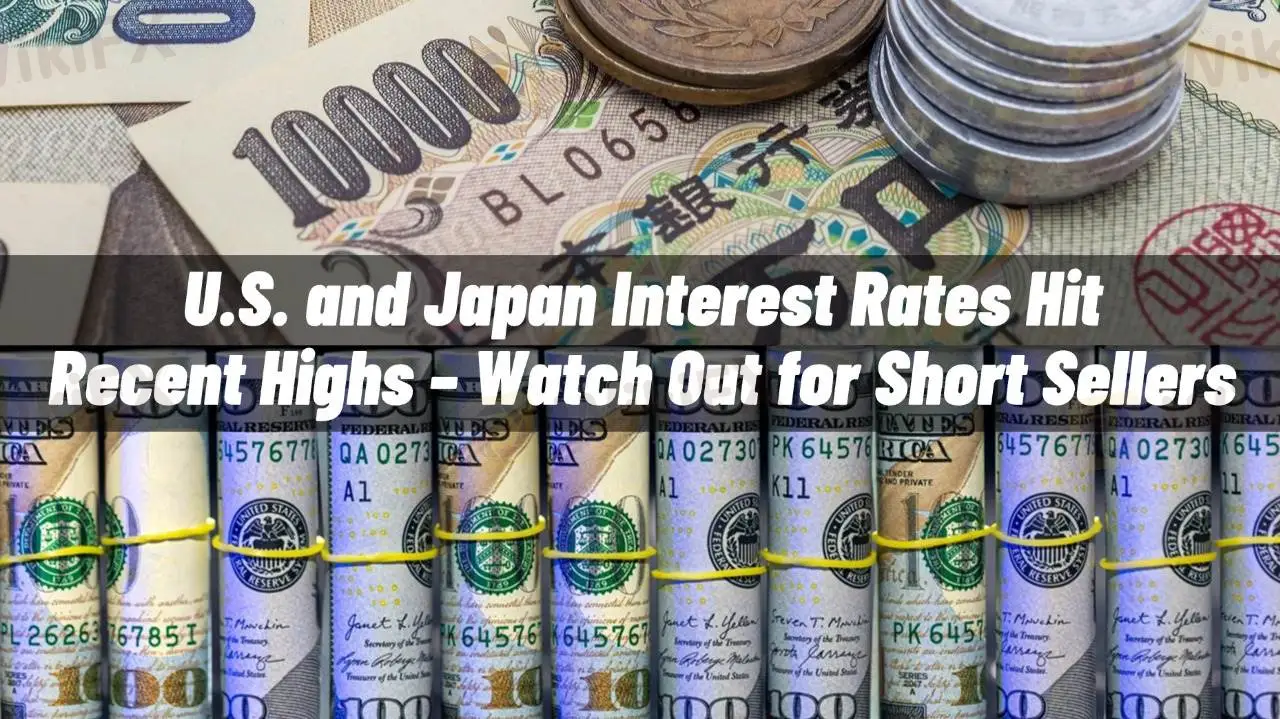简体中文
繁體中文
English
Pусский
日本語
ภาษาไทย
Tiếng Việt
Bahasa Indonesia
Español
हिन्दी
Filippiiniläinen
Français
Deutsch
Português
Türkçe
한국어
العربية
U.S. and Japan Interest Rates Hit Recent Highs – Watch Out for Short Sellers
Abstract:USD/JPY briefly surged past the 150 level, driven by strong U.S. economic data, but market uncertainty remains. With expectations of a potential rate hike by the Bank of Japan, investors should closely monitor policy developments.

Recently, both U.S. and Japanese interest rates have moved higher, drawing market attention. The USD/JPY pair hit a three-week high of 150.92 before retreating to around 150.42. The U.S. dollar index extended its gains, supported by robust U.S. services data and easing market concerns.
Meanwhile, Japans weak economic performance has weighed on the yen, though speculation about future rate hikes by the Bank of Japan remains.
Why Are U.S. and Japan Interest Rates Rising?
Stronger-than-expected U.S. services PMI boosted Treasury yields, further strengthening the dollar. Additionally, reduced trade policy concerns improved investor sentiment, diminishing the yens safe-haven appeal.
On the other hand, Japans manufacturing and services PMI continued to show weakness, but expectations of a potential BOJ rate hike—possibly in July—have kept markets cautious.
How Should Investors Respond?
Market opinions on the dollars future remain divided. CFTC data shows an increase in short positions against the dollar, indicating that some investors believe its upside may be limited.
Additionally, if the BOJ adopts a more hawkish stance, the yen could see a rebound. Given the current landscape, investors should closely track U.S. nonfarm payrolls, BOJ policy shifts, and global economic trends to adjust their strategies and navigate market volatility.

Disclaimer:
The views in this article only represent the author's personal views, and do not constitute investment advice on this platform. This platform does not guarantee the accuracy, completeness and timeliness of the information in the article, and will not be liable for any loss caused by the use of or reliance on the information in the article.
Read more

Why Trade Agreements Matter to Nations
In today’s interconnected world, trade agreements serve as the foundation for stable and predictable international commerce.

Trade Fights Are Heating Up—What Happens Next?
Global financial markets have become increasingly reactive to even minor developments in international trade talks.

Juno Markets Upgrades to FYNXT PAMM
Juno Markets has successfully upgraded its managed account infrastructure by integrating FYNXT’s Percent Allocation Management Module (PAMM) system.

Italy’s CONSOB Blocks Sites of ITradingFX and NEX TRADE in Latest Crackdown
Italy’s Companies and Exchange Commission (CONSOB) has ordered Internet service providers to block access to nine unauthorized investment websites, including “ITradingFX” and “NEX TRADE,” as part of its ongoing effort to curb abusive financial services Consob.
WikiFX Broker
Latest News
Five UK Financial Firms Collapse, FSCS Offers Support for Affected Clients
Why Trade Agreements Matter to Nations
Non-Existent Online Scheme Took Away RM580,000
RM15 Million Gone in Fake Investment Scam
Think Scams Won’t Happen to You? That’s Exactly What Scammers Count On
Crypto Traders Hit by Scam Using Fake Regulatory Documents, MFSA Cautions
Trade Fights Are Heating Up—What Happens Next?
Juno Markets Upgrades to FYNXT PAMM
Beware of New Scam Tactics Lurking on WhatsApp!!
Italy’s CONSOB Blocks Sites of ITradingFX and NEX TRADE in Latest Crackdown
Currency Calculator


